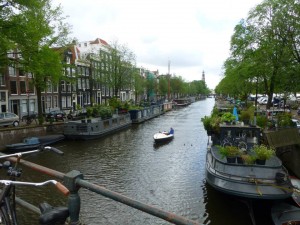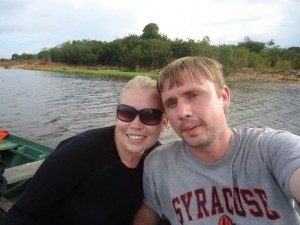
From Brazil to Switzerland to China, from Portuguese to German to Mandarin, it’s been a thrilling and challenging experience. One year ago this week we launched the Working 2 Live, Living 2 Travel blog three months after moving to São Paulo. For the past 15 months we’ve been moving internationally every six months, attempting to learn a new language, adapting to a new culture, making new friends, and all the other adventures that come along with travel. In celebration of the blog’s one-year anniversary, we’ve compiled our top five lessons learned since undertaking this adventure.
It’s never been easier to stay in touch with old friends or to make new friends
We’ve often told friends that we can’t imagine what it would have been like traveling in the 1970s, 1980s or maybe even the 1990s before the advent of Skype, Facebook and other means of free or cheap communication tools. With Google Voice, we’re able to call any American phone for free to reach those who do not use modern technology. A VPN allows us to regain communication tools and hometown newspapers blocked in particular destinations. This technology makes it much easier to see the world while still staying in touch with all the happenings back home.
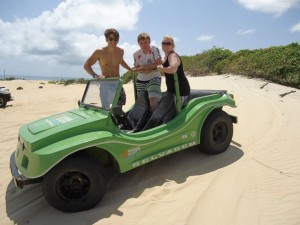
When traveling, we’re cautious but also open. We listen to others’ stories and often stay in hostels or other areas frequented by travelers. We hear new ideas and make new friends. Occasionally, we stay in touch using the same communication means mentioned above and we may meet some of our closest future friends on any weekend trip. While you fear losing friends each time you move, our lifestyle has helped us gain more friendships rather than less. Many of those friendships become stronger as they endure time and great distances.
You will never completely be at home again because part of your heart will always be elsewhere. That is the price you pay for the richness of loving and knowing people in more than one place.
Speak the local language when possible and always listen
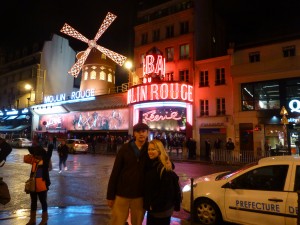
Upon his return from two years in Mozambique, our friend, Daniel, told us that the more you learn the language, the more you are able to understand the culture. He was completely right. In each place we’ve resided, the more we learn of a language, the more we have been able to join in local customs and understand the idiosyncrasies of locals. Even the smallest amount of knowledge on the local language goes a long way. Many complain that the French refuse to speak English even when fluent. This will likely be true if you approach a person in Paris and immediately begin speaking English. However, even the simple effort to say “Bonjour Monsieur/Madame parle
Wherever you go, resist the urge to talk more than you listen. Each traveler carries so many stories and if you will stop to listen rather than spilling out your own, as in almost any environment, you will learn so much more.
There is a reason we have two ears and one mouth.
Plan but be spontaneous
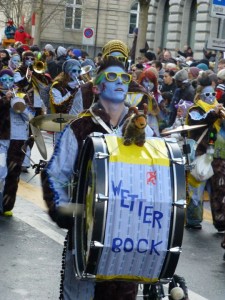
We know people who research vehemently before heading to their next destination and layout an agenda of everywhere they want to go. While it’s a good idea to be informed, we recommend setting priorities rather than specific times. Before departing, we use sites like WikiTravel, WikiVoyage and TripAdvisor as well as recommendations from friends to compile a list of destinations and sometimes directions on how to get there. However, we don’t assign times, only priorities (whether written or mental) on where we prefer to go.
Don’t be the guy who never leaves the neighborhood of his lodging but also don’t be the guy so busy that travel becomes more like a chore than an enjoyment. Don’t be afraid to accept that invitation to an awesome diner next door because it will throw you two hours behind on your schedule. You never know where your next travel story will come from. As for that list of priorities, each time we visit Paris we knock off the top few and leave the rest of the list for the next visit.
Why not seize the pleasure at once? How often is happiness destroyed by preparation, foolish preparation!
Don’t put off what you can do now – never miss an opportunity to see something today

If you’re afraid of how others worship or if you are offended by how others express their political views, then you’re missing amazing opportunities. We have witnessed Candomble ceremonies in northeastern Brazil, gathered with followers of the Pope on Easter Day in Rome, and dined with Muslims breaking fast at the end of each day during Ramadan. Each time we see people on Earth praise and worship the deity of their choice, we see more similarities and less differences in their ideas than we expected. Each time we hear someone give a stance on an issue, it may not change our stance on the issue at all but will open our minds and better educate us in defending our own stance. How can you be right and they be wrong if you never considered what the other side said or did?
As we look back today, we really wished we would have more thoroughly explored Mexico before it became severely plagued by cartels or that we would have visited Egypt prior to the rebellions. The lesson that we have taken from these circumstances is to take each opportunity that arises rather than pushing it to a later year. Wars, depressions and natural disasters can easily change those opportunities quite drastically over time.
If you reject the food, ignore the customs, fear the religion and avoid the people, you might better stay at home.
Don’t be owned by your material possessions
Before we left the U.S., we began renting out our Virginia home and placed some of our belongings in storage while selling or giving away others. While we sometimes miss our awesome Prohibition era home and Huntington Heights neighbors or a rainy Saturday in our living room decorated with New Orleans art, there is so much truth to what George Carlin says:
Chris’ grandmother once had a fire destroy much of her house and many of her possessions. While sharing wisdom with her many grandchildren and great-grandchildren, she often mentions that fire as the point when she learned to find treasures outside of materialistic possessions. Remember that with each pet, sofa or car that you gain, you lose mobility and your ability to travel. Photographs can be stored electronically today, adding to the possessions of e-books and downloaded entertainment that takes up space only in the virtual cloud rather than in our physical homes. We continue to collect art and memorable pieces to throw into storage for that future home once our travels are less frequent, but we continue to value sentimental memories recorded in our minds and on our hard drives over materialistic possessions.
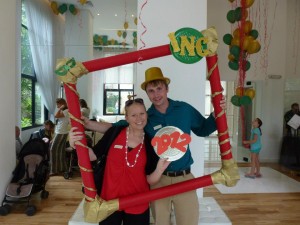
It is the preoccupation with possessions, more than anything else that prevents us from living freely and nobly.
Here’s to our one-year anniversary with the hope of many more travel stories to share. Want to celebrate with us? Share what traveling has taught you in the comments. For the best lesson shared by Dec. 31, we’ll send you a set of decorative Chinese chopsticks. Happy Travels!
-Chris & Monica


